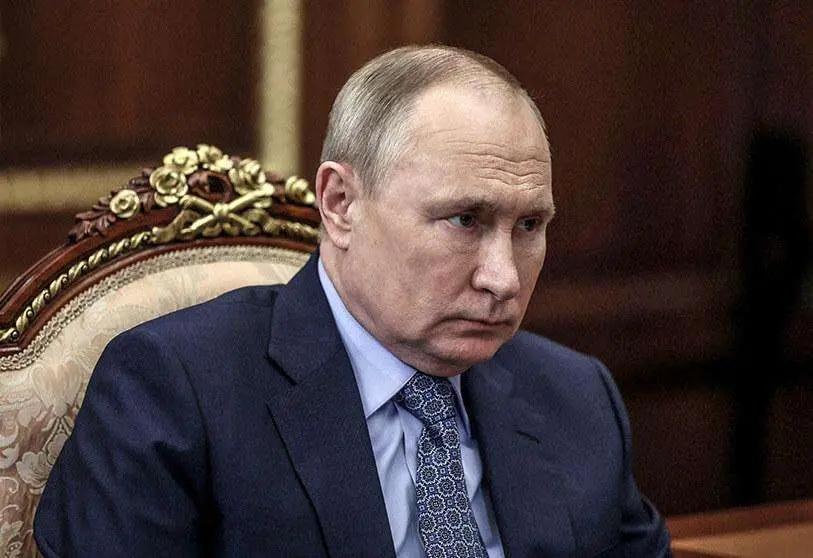Winter will complicate Putin's war

Ramzan Kadyrov is openly calling for "radical measures", including nuclear ones, to crush Zelensky and his resistant army once and for all and take Kiev by any means necessary.
To further deepen the tension, Kadyrov announced that three of his underage sons (aged 14, 15 and 16) will go to Ukraine to the most difficult sections.
The leader of the Chechen Republic and Putin have formed an odd alliance of convenience that the Russian dictator recently rewarded by promoting him to the rank of colonel general. The significant gesture was announced on 5 October, Kadyrov's birthday.
The Chechen's stance is to be taken into account as he has for weeks been encouraging the Kremlin to show Russia's mighty muscle to crush Ukraine and its allies. As part of his ambitions, Kadyrov aspires to oust Sergey Shoigu, Russia's current defence minister.
In addition, a constitutional amendment to the Magna Carta has been enacted to add the names of the four provinces Donetsk, Luhansk, Kherson and Zaporiyia in Article 65 of paragraph 3 related to the federal structure; and an order has also been enacted, declaring the Zaporiyia nuclear power plant - the largest in Europe - to be Russian property.
This columnist contacted two leading military experts in Spain for their views on the Russian nuclear threat.
Colonel José Luis Calvo Albero, director of the Spanish Defence Ministry's Division and Coordination of Security and Defence Studies, opined on the need to leave an "exit route" for someone like Putin.
I asked him whether the Russian dictator's threat could be realised, to which Calvo Albero pointed out that there is always that fear: "Because an uncontrolled escalation or an excessive humiliation of Putin... a catastrophic defeat of the Russian army that even puts the Moscow regime itself at risk... it would have to lead Russia into an overwhelming situation to take a radical decision such as a tactical nuclear weapon. If this happens we will be in uncharted territory; however, it should not be completely ruled out".
For us in the military, the adviser confided, this war is a source of learning: "We are seeing what war is like in the 21st century, we had a partial idea because there had been small conflicts, wars against terrorism which are different, but we hadn't seen a big conventional war for a long time and we are seeing how war is now dominated by unmanned systems, digital networks and electronic warfare are tremendously important".
And then there is the weather as a major factor in any war. In Europe, the long, harsh winter is just around the corner, the Ukrainians are rushing to regain positions and the Russians know that it could trap them in a deadly stalemate for their troops.
According to Raúl González, the Russian army has not been well advised by its chiefs, by its Ministry of Defence, because the dysfunction between politics and defence is noticeable; and at a certain point "everyone" has come to overestimate the Russian army and its capabilities.
In the opinion of the military expert from the Minerva Institute in Spain, in the current situation of the Russia vs. Ukraine conflict, we are seeing a fairly rapid progression of the Ukrainian army in a counteroffensive that prior to the summer the fronts were stagnant, and the surprise is that perhaps Russia is now ceding too much ground.
"This could lead one to think that there is a collapse of the Russian forces, I don't think this is misleading, they are probably occupying more easily defendable positions; and the retreat will be nothing more than a return to a position of stagnation... winter is coming and the infantry forces will no longer have the same mobility and all that activity. That's why I think the Ukrainians are accelerating their advance," according to Gonzalez.
It's the million dollar question: will a tactical nuclear weapon ever be used? In González's view, this would be a disproportionate measure considering the international response. Not only from the West, but also from Russia's allies.
Regarding the performance of the world's second most powerful army, González insisted on the accumulation of tactical errors in the field, in its functioning, logistics and coordination to such a degree that the higher commanders have not been able to keep the operations secret. "For Putin, this military fiasco clashes with the image he wanted to generate of empire and superiority. There is pressure for him to show greater capabilities".

